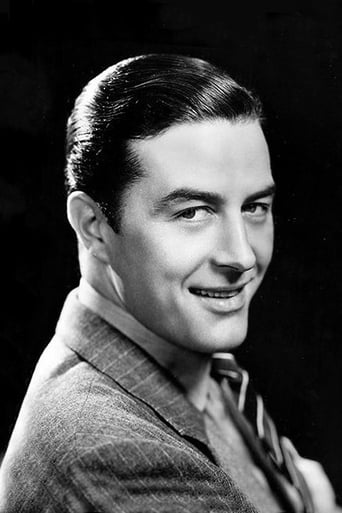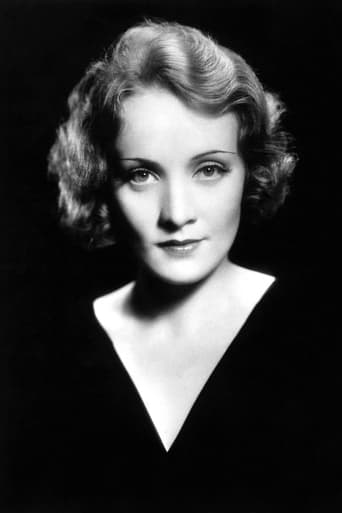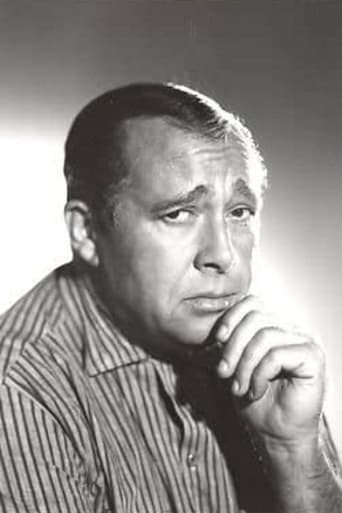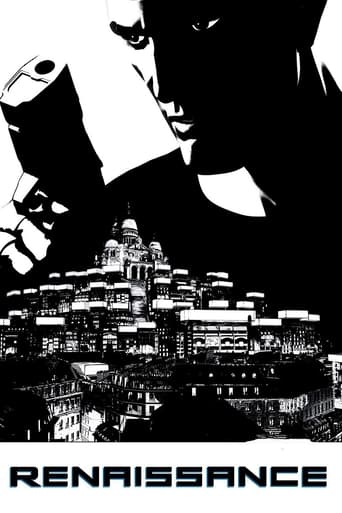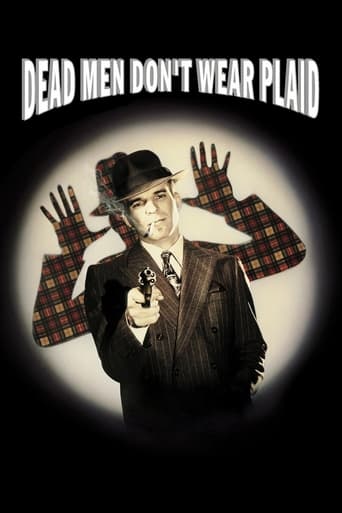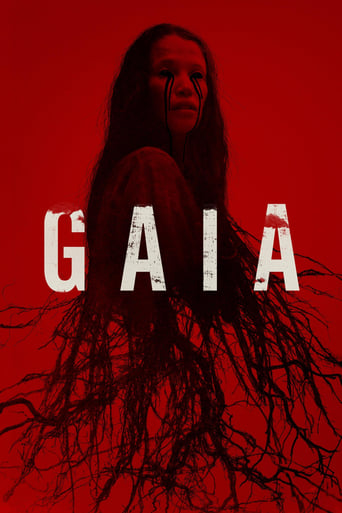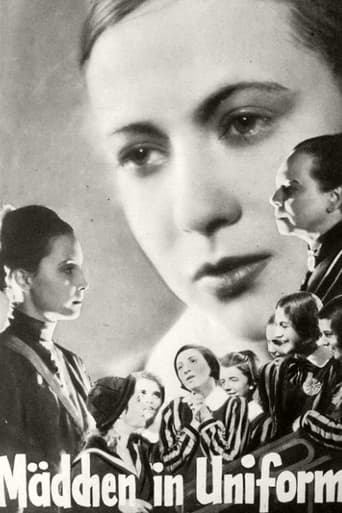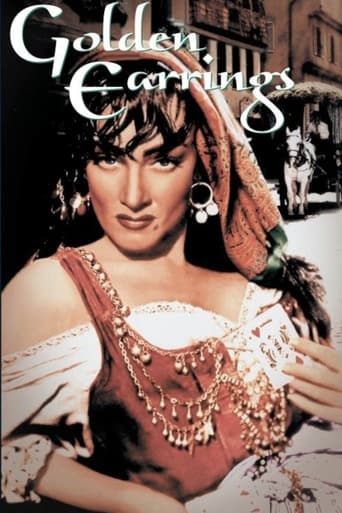
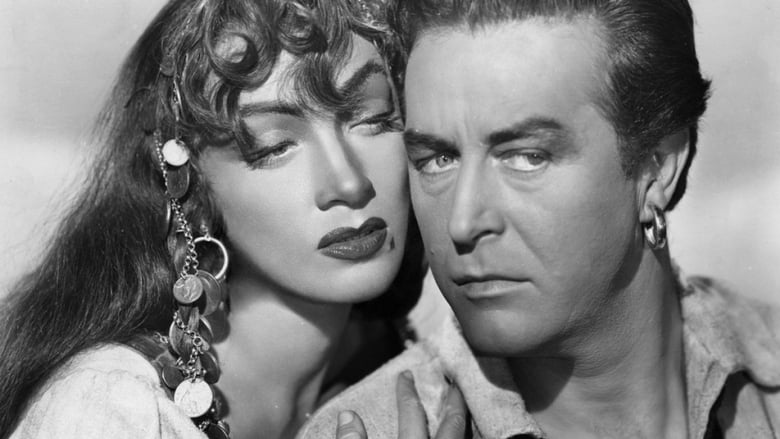
Golden Earrings (1947)
A British colonel escapes from the Gestapo to the Black Forest and poses as a Gypsy's mate.
Watch Trailer
Cast
Similar titles
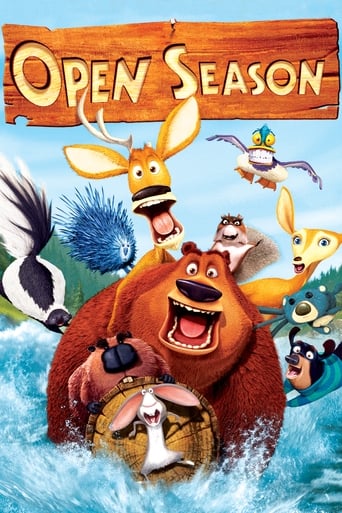
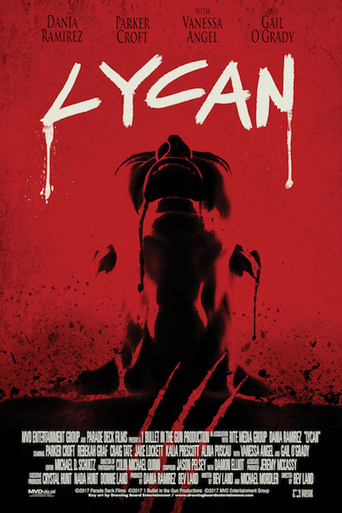
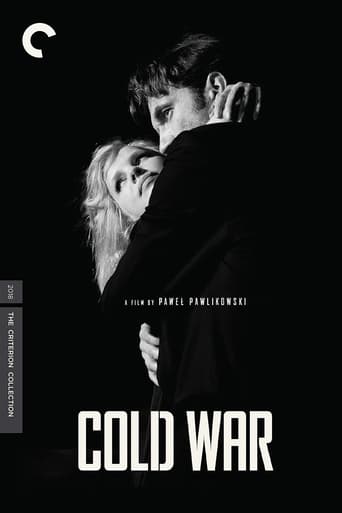
Reviews
Instead, you get a movie that's enjoyable enough, but leaves you feeling like it could have been much, much more.
As somebody who had not heard any of this before, it became a curious phenomenon to sit and watch a film and slowly have the realities begin to click into place.
This is one of the few movies I've ever seen where the whole audience broke into spontaneous, loud applause a third of the way in.
By the time the dramatic fireworks start popping off, each one feels earned.
Colonel Denistoun (Ray Milland) recounts an episode that happened at the outbreak of WW2 when he and Richard Byrd (Bruce Lester) escaped from German custody where they were being held as spies. They split up and make their way to Professor Krosigk (Reinhold Schunzel) who has a formula for chemical weapons that needs to be smuggled out. We follow Denistoun's journey as he meets with Lydia (Marlene Dietrich) and adopts her gypsy ways...This film is OK but nothing more. In fact it is quite dull in parts. Marlene Dietrich is unconvincing as a gypsy as is Ray Milland. Dietrich, however, still manages to bring her character to life - she's good at the humorous moments, eg, no messing around trying to kiss Milland - and brings an energy to her role, while Milland is likable but nothing more. There are rare tense moments, eg, whenever the Germans appear and the film needed far more of their inclusion. It just dribbled along for most of the duration.One of the best things about the film is Zoltan's (Murvyn Vye) deep voice. Zoltan looks slightly weird but is more convincing as a gypsy. He sings the title song - some nonsense about gold earrings and love. Golden earrings...!!??.....you're either a chav or a homosexual if that is what you wear on your ears.....NOT a gypsy man.
Mitchell Leisen loved the long flashbacks :"hold back the dawn" was a story the hero told the director himself;" to each his own" began with a shot of a middle age lady whose misfortunes were told ;" no man of her own" ,faithful to the novel ,began with a "give up the fight" feeling .He had also tackled the fantasy genre in "death takes a holiday"."Golden earrings" is a long flashback,blending spy thriller scenes in a just-before-WW2 Germany with snatches of supernatural thrown in :the heroine knew his beloved one would come (she's a fortune teller anyway) and ,most amazing scene,the hero himself through her contact becomes a clairvoyant,seeing his mate's future in the palm of his hand.I do not put,however ,"golden earrings " in the same league as the movies I mention above;I do not think it's underrated cause its flaws are glaring:first of all,like the Jews,the gypsies were persecuted and sent to concentration camps by the Nazis before and during the war ;so it is absolutely impossible to believe they are allowed -although one of the officers says they are an inferior race-to enter the scientist's desirable mansion to tell fortunes.Besides,everybody speaks English in Germany ,only some soldiers mumble a few German sentences and that's it.I do like Ray Milland -a certainly underrated actor ,sadly remembered by too many people as the villain in "love story" ,his worst role- and Marlene Dietrich is arguably a fascinating actress ,but as Mardi Gras gypsies ,they cannot be taken seriously .
When you're asking yourself pertinent questions as a film unspools before you it's usually a sign that something is sadly amiss. The first question I asked myself here is WHY, Quentin Reynolds. Okay, the film is going to be a flashback ergo Ray Milland needs someone to tell his story to but given that he is telling it to a fellow passenger on a flight to Paris it could have been any fictional creation. Given the date of the movie, 1947, it may well be that Reynolds was familiar as a war correspondent but the fact that Milland is telling Reynolds and not Gregory Schmearcase adds nothing to the story. Next question; as stated, Milland tells his story on a flight to Paris, again, WHY. The story he is relating took place in Germany and that is where his gypsy lover, Dietrich, is waiting for him. So why not a flight to Berlin, Frankfort, Stuttgart or whatever. Leading on from this, one minute he is on the plane - en route, remember, to Paris - in the next shot he is deep in the German countryside rendezvousing with Dietrich and her caravan. How did he get there? At the beginning of the film, set in September, 1939 - war is declared even as we watch - Milland is a British agent, travelling with a colleague and intent on obtaining a formula from a German chemist. Milland and colleague are arrested, escape and don German uniforms. Having sunk the car in which they escaped, they separate after arranging a rendezvous near a signpost. Milland meets Dietrich, a gypsy, and travels in her caravan. When they reach the rendezvous Milland's colleague turns up in full Bavarian gear and riding a bicycle. How did he acquire these things. It's little things like that, plus the total lack of chemistry between Milland and Dietrich, the fact that director Mitchell Liesen is totally out of his element, being more at home with sophisticated comedy and elaborate sets that tended to mar any enjoyment the movie may have had
I've watched this film perhaps a dozen times, and yet it always stays fresh with me. I think it's one of the best things Dietrich has ever done. This is a Dietrich you've never seen before. Not a worldly femme fatale, but an earthy, highly engaging woman. The interplay between this uncultured gypsy (Dietrich) guided by the spirit world and the stuffy, establishment rationalist(Milland) is both funny and poignant. Dietrich and Milland are simply wonderful in their roles, and Leisen's direction is subtle and clever. If the story lacks plausibility, who cares? This picture belongs to Dietrich and Milland and the wonderful authenticity they bring to their characters.
